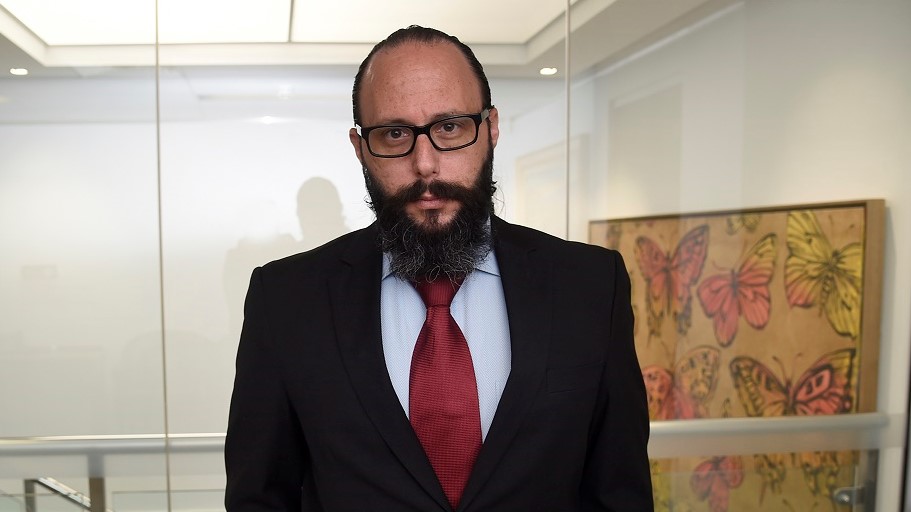An Israeli company that has developed chemical tags to prove authenticity of goods is looking to the ASX to expand its fortunes.
Security Matters is eyeing Australia’s well-developed agricultural and mining sectors as potential customers for its blockchain innovation.
The company’s proprietary technology, which expands on work done by the Israeli military, is based on a chemical identification ‘tag’ that can be mixed with solid, liquid or gaseous substances to provide a permanent means of identifying individual products.
The tags can be added to raw materials during the manufacturing process and survive for the life of the product.
Tags can be read at a distance, and through packaging and other substances, using a proximity-based energy scanner that also forms part of the company’s proprietary technology.
The key element of the company’s solution is an Ethereum blockchain-based register that can be used to create a permanent record of the provenance of both the products and the materials used to make them.
Building the blockchain supply chain
Co-founder Haggai Alon sees the durability and universality of the tags as offering a new level of provenance and traceability for existing supply chains, and has been actively working with clients to prove the technology in working environments.
The chemical tags can be attached to any product, he says, and a single reader can be used to scan them in any medium – creating a multi-layered “drop-in solution” that feeds metadata about the goods into a format that is traceable and actionable by supply-chain systems.
“We’re able to create a full ecosystem from raw materials, manufacturing, assembly and packaging through to channel distribution, sales, and point of sale,” he told Information Age.
“Blockchain allows us to create a full ledger as a drop-in SaaS system that can be dropped into a production line without having to recheck regulations.”
Supply-chain quality control is just one of the potential applications for the technology: it’s also being positioned as a way of demonstrating the authenticity of suspect counterfeit goods – potentially helping stem counterfeiting that the EU Intellectual Property Office recently pegged at €60 billion ($A93 billion) per year, equal to 7 percent of sales, in the EU alone.
Another core market is precious minerals and metals – a market that has seen companies like De Beers embracing blockchain as a way of confirming authenticity and proving conflict-free origin.
“It’s a very fast and aggressive enabler to protect the brand,” Alon said.
A deal with the Perth Mint – Alon remains tight-lipped about the details, except to say that the two organisations are looking at ways of applying better traceability to the organisation’s gold holdings – has opened the doors for the company to explore opportunities amongst Australia’s vast agricultural and mining sector.
From Israel to the ASX
That link to Australian industry is expanding into a full-blown market opportunity for the company, which plans an initial public offering on the ASX in September.
“For a company like ours, Israel is not a relevant economical microcosmos,” Alon explained. “We’re not a cyber firm or Internet app, so we really need to target Australia’s huge agricultural manufacturing sector.”
Alon credits ASIC and the ASX for developing “the very friendly possibility to list young companies” – some 16 Israeli companies have already, similarly, listed on the ASX – and notes that an Australian listing will also help bolster the company’s credentials as it expands globally into the future.
“Being a public company is important, because it gives the feeling that we are mature enough to scale up our technology and services.”
Ongoing Australian government efforts to co-develop new technologies with the Israeli government have seen a number of successful joint ventures, with trade between the two countries officially valued at $1.2 billion in 2016.
Regular trade missions by the Australia-Israel Chamber of Commerce (AICC) have reinforced this relationship, and this month Australian venture-capital firm OneVentures partnered with Israeli VC Viola Credit to establish a $100m dedicated credit fund for high-tech growth companies.
“It has been very important to see the work the governments of Australia and Israel have been doing in the last two years to connect our two economies,” Alon said. “We really feel at home.”
A financially welcoming climate is only part of the appeal of Australia for Security Matters: Australia’s growing expertise in blockchain – which recently saw a Commonwealth Bank-led consortium ship 17 tonnes of almonds to Germany using a blockchain-augmented supply chain – has been recognised globally as the country was recently chosen to lead an ISO taskforce for blockchain standards.
“The fact that blockchain is now becoming blockchain-as-a-service will help us to scale our service very quickly and cost-effectively,” said Alon, noting that the company has two patents pending around specific elements of its blockchain architecture.
“It’s an additional layer that really synchronises with what they’re doing. We can scale to any market – and with one technology we will be able to be the trusted party between the companies on both sides of the supply chain.”









